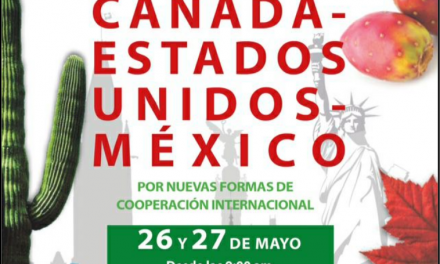Case of Murdered Mexican Environmental Activist Moves to International Sphere
By Simon Schatzberg
Americas.org
Seven years and seven months have passed since Mariano Abarca joined the ranks of the dozens of environmental defenders that have been killed in Mexico for resisting the destructive mining projects that are tearing apart the Mexican countryside.
In that time, the Mexican government has not brought anyone to justice for the murder. On June 26, Abarca’s family, having lost all faith in the Mexican justice system to prosecute the case, sent a petition to the Inter-American Commission on Human Rights (IACHR)

In 2009, Mariano Abarca was murdered for his activism against a Canadian mining project. Tired of waiting for justice from the Mexican State, his family is taking the case to the Organization of American States
The petition accuses the Mexican government of violating Abarca’s right to life, his right to judicial protection and several other rights included in the American Convention on Human Rights.
If the IACHR admits the case, the Mexican government will need to respond to the petition, and there may be a hearing before the Commission. The Abarca family is optimistic that the case will be admitted.
“It’s indisputable that there was a violation of the right to life, that there has been no serious, deep investigation, and that no one has been punished, so in this sense the responsibility of the Mexican state is clear,” said Miguel Ángel de los Santos, a professor at the Autonomous University of Chiapas (UNACH) and legal representative for the Abarca family, in an interview with the Americas Program.
“It’s also clear that the state didn’t fulfill its obligations to guarantee Mariano’s rights, and that the rights of the family are still being violated. Their search for justice has not ended, and that represents frustration, anguish, which also constitutes a violation of human rights.”
“A Death Foretold”
As a member of REMA, Abarca was on the front lines of a battle against a barite mine operated by the Canadian company Blackfire Exploration in his hometown of Chicomuselo, Chiapas.
A series of investigations from 2013 by Mining Watch Canada and the United Steel Workers tell the story of the conflict over the mine, showing the complicity of the government of Chiapas, Blackfire Exploration and the Canadian Embassy in the events that lead to Abarca’s death.

The Abarca family is joined by three co-petitioners: the Mexican Network of Mining-Affected Communities (REMA), of which Abarca was a founding member, Otros Mundos Chiapas, and the UNACH human rights center.
Blackfire Exploration, a small, privately-held company based in Calgary, Alberta, obtained mining concessions in the Chicomuselo municipality of Chiapas in 2005. The concession overlapped with the territory of two ejidos, Ejido Nueva Morelia and Ejido Grecia, which both initially opposed to the project. Officials from the Canadian Embassy traveled to Chiapas several times before the mine went into production, and managed to help Blackfire negotiate land-use agreements with the Ejidos, although many ejidatarios still felt that they had not consented to the project. In late 2007, Blackfire started extracting barite, a mineral used in oil and gas exploration.
Over the next two years, the mine’s operation led to a series of conflicts, relating to barite being extracted from along an access road that the company had built through Ejido Nueva Morelia, in violation of the land-use agreement between the company and the ejido. Abarca, as a leader of REMA in Chicomuselo, organized ejitadarios to defend their territory, and began investigating the company’s connections to local government and the Canadian Embassy.



